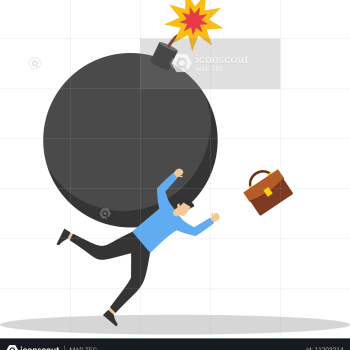Stephen Asma is a philosophy professor writing in The Chronicle of Higher Education on Monsters and the Moral Imagination. Here is some of his theory:
The uses of monsters vary widely. In our liberal culture, we dramatize the rage of the monstrous creature—and Frankenstein's is a good example—then scold ourselves and our "intolerant society" for alienating the outcast in the first place. The liberal lesson of monsters is one of tolerance: We must overcome our innate scapegoating, our xenophobic tendencies. Of course, this is by no means the only interpretation of monster stories. The medieval mind saw giants and mythical creatures as God's punishments for the sin of pride. For the Greeks and Romans, monsters were prodigies—warnings of impending calamity.
After Freud, monster stories were considered cathartic journeys into our unconscious—everybody contains a Mr. Hyde, and these stories give us a chance to "walk on the wild side." But in the denouement of most stories, the monster is killed and the psyche restored to civilized order. We can have our fun with the "torture porn" of Leatherface and Freddy Krueger or the erotic vampires, but this "vacation" to where the wild things are ultimately helps us return to our lives of quiet repression. . . .
According to the critic Christopher Craft, Gothic monster tales—Frankenstein, The Strange Case of Dr. Jekyll and Mr. Hyde, Dracula, Anne Rice's Vampire Chronicles—rehearse a similar story structure. "Each of these texts first invites or admits a monster, then entertains and is entertained by monstrosity for some extended duration, until in its closing pages it expels or repudiates the monster and all the disruption that he/she/it brings," he writes. . . .
Monsters can stand as symbols of human vulnerability and crisis, and as such they play imaginative foils for thinking about our own responses to menace. Part of our fascination with serial-killer monsters is that we (and our loved ones) are potentially vulnerable to sadistic violence—never mind that statistical probability renders such an attack almost laughable. Irrational fears are decidedly unfunny. We are vulnerable to both the inner and the outer forces. Monster stories and films only draw us in when we identify with the persons who are being chased, and we tacitly ask ourselves: Would I board up the windows to keep the zombies out or seek the open water? Would I go down to the basement after I hear the thump, and if so, would I bring the butcher knife or the fireplace poker? What will I do when I am vulnerable?
He goes on and on about such “monsterology,” but I don’t find any of these points particularly persuasive about why we find zombies, vampires, aliens, and slashers so compelling. What is YOUR theory? Put another way, if you are a monster fan this time of year, if you love to get scared, and if you enjoy horrific images, what’s the big attraction?











